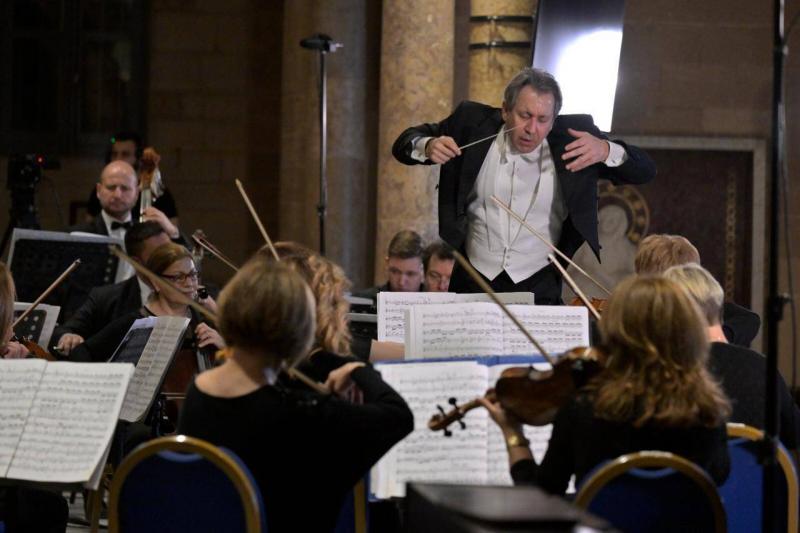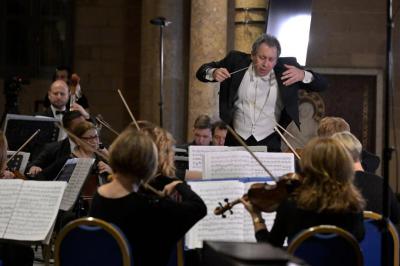Invited by the President of the National Higher Institute of Music, composer Hiba Kawas, and the Austrian Ambassador to Lebanon, Rene Paul Amri, the Lebanese Philharmonic Orchestra held a concert at St. Joseph's Church for the Jesuits in Ashrafieh, conducted by Maestro Harout Fazilian, featuring soprano Paula Jeckstadt. This concert is part of the regular orchestral performances organized by the National Conservatory for classical music enthusiasts.
The event was attended by the Colombian Ambassador to Lebanon Edwin Augustus Alfonso, the Spanish Ambassador to Lebanon Jesus Santos Iqguado, the Director of the UNESCO Regional Office in Beirut Costanza Farina, and Mrs. Amina Berri representing the Minister of Culture Mohammad Wissam al-Mortada. A diplomatic delegation from the Austrian Embassy was also present, led by the Austrian Consul representing Ambassador Dr. Rene Emery, alongside a selection of political, diplomatic, cultural, judicial, and media figures, as well as a large audience of music lovers.
The celebration began with a speech by the President of the National Higher Institute of Music, who welcomed the collaboration between the conservatory and the Austrian Embassy in Lebanon, as well as local and global partners, stating: "This collaboration enriches the cultural and musical life in Lebanon, and today this collaboration with Austria is evident in the participation of soprano Paula under the leadership of Maestro Harout Fazilian, who has chosen a remarkable repertoire by Beethoven and Gustav Mahler for tonight's concert, which includes musicians from the Marinsky Theater in Moscow, Paris, Venezuela, and other countries. We are currently working towards next October to expand the orchestra back to its previous count of 100 musicians, so it can tour all around the world." Kawas also mentioned the workshops held at the institute for students and teachers in collaboration with major musical institutions globally, including those in Austria and Russia.
Afterwards, Maestro Harout Fazilian took the stage, welcoming the audience and explaining the musical choices of the evening, which revolve around "resurrection", featuring Beethoven's works and Mahler's pieces, with the Second Symphony titled "Resurrection." The maestro noted that his name in Armenian also means resurrection.
The orchestra opened the evening with Beethoven's famous "Coriolan Overture," written in 1807 for the story of the Roman hero Coriolan, inspired by a drama written by Austrian poet Von Kollin. It is considered one of his strongest dramatic overtures, and the Philharmonic Orchestra managed to reflect the brilliance of the intense dramatic performance in its precise portrayal.




